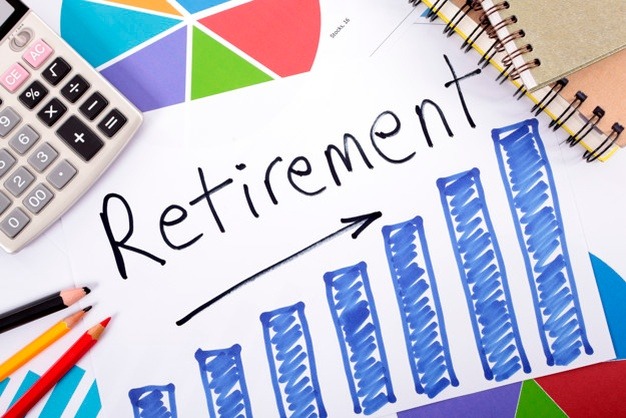While your retirement may still seem a long way away, it is always a good idea to start planning to make the most of it.
Retirement can be a significant transition after a long working life. As a result, there is a lot to consider, from lifestyle changes to financial concerns and personal health and well-being.
Read on to learn more about what you should be thinking about now and why it’s best to begin planning for the next stage in life as early as possible.
Set your retirement goals.

Every person has a different set of expectations for their life after retirement, which can vary depending on their life experiences, financial expectations, family situation, and many other factors.
Thinking about your individual goals, however, will help you create a realistic and feasible plan so that you can enjoy your life in your later years.
There are several ways to frame your goals, from looking at your financial possibilities to your future living situation.
You may also have ambitions you want to fulfill after retirement, such as taking a trip, renovating a home, etc.
To begin with, you may want to list your ideal goals, such as choosing an independent living location or having a set amount of savings put away toward a dream vacation. By clearly outlining your goals, you can clarify your ideas and work out how to meet them best.
Get some reliable financial advice

Making sure that your finances are managed adequately after retirement is essential. Primarily because having adequate savings will help you ensure that you can live life as you hope to.
To ensure you have a secure financial cushion after you finish your working years, it is worth getting some reliable and accurate financial advice and making sure that it is tailored to your circumstances.
Any financial plan for your retirement should consider an accurate picture of your spending requirements. This may include a wide range of issues such as living expenses, medical costs, other essential items, and any leisure-related costs you may want to plan for.
Everyone will have different savings available to them, depending on their career and financial history. Still, by getting professional can ensure that your retirement savings perform as well for you as they can.
Along with thinking about your savings, you should also be wary of any debts that you may have – it is always worth trying to clear any outstanding debts if you can, or at least make clear plans to do so to prevent the stress and expense of these hanging over you in the years to come.
Prepare yourself emotionally for retirement

Retirement might seem like the ideal way to end a busy and challenging working life – and early retirement is often considered a perfect goal for many entrepreneurs. However, retirement brings a significant lifestyle change that can sometimes be more difficult to adjust to than you might think.
After retiring, one of the most significant shifts people often struggle with is the sudden enormous amount of free time they may have on their hands after many years of working.
This shift from working life and career might mean losing or reducing some of the connections, friendships, and meaningful interactions built around a job, as well as the potential loss of intellectual stimulation many experience.
To avoid feeling lost or adrift, it is worth planning personal goals that help you stay stimulated and engaged and feel like you still have a meaningful life ahead of you.
For some, this may mean getting involved in family life, such as supporting adult children with childcare, participating in voluntary activity in the local community, or even taking on a more part-time role to keep you busy.
Retirement can also be an excellent time to learn new skills, polish existing ones, and work towards enjoyable personal goals. Thinking about this before retirement can help you look forward to the next stage in your life.
Focus on your health and wellbeing
Another critical concern that comes along with retirement is the potential change in health as you get older. Aging will inevitably bring some changes in your physical and cognitive health. Particularly if you have a family history that makes you more likely to suffer from certain conditions s. It is therefore, essential to take your health seriously, to enjoy your life to its fullest.
There are plenty of small and significant steps that you can start to do before retirement, such as having regular health checks to identify any potential health problems you may need to take pre-emptive action on.
While it can be daunting and worrying to flag up any severe health issues, knowing that you can do something about it by choosing a healthier lifestyle can prevent possible symptoms from worsening.
Have No Regrets
This may sound very preachy. However, the final thing you must ensure is not having any regrets. Regrets can truly affect you when you assess what went wrong. Or what went right when you were nearing the end?
Therefore, ensure that you do not leave with regrets. Make sure to tick off as many boxes as possible from your to-do list. This is not directly related to formulating a proper retirement plan, but it is equally essential if you think about it objectively.
The Final Mile
Growing old is something none of us have on our itinerary. It is something we fo not want to face. It is something we want to avoid. However, it is an inevitable truth that we would have to face at one point. Therefore, being prepared is the least tht you can do.
Alongside professional help from physicians, choosing a more health-focused lifestyle can also make a huge difference. This can include simple steps like planning a more healthy and nutritious diet. A diet that supplies all the nutrients your body needs as it ages.
Hence, establishing a better sleeping schedule, and having a regular physical activity schedule. By looking at the reality of getting older and ensuring that your body has the nourishment it needs to stay well as it experiences changes over time, you can look forward to retirement as a positive and exciting time.
Read Also:




























